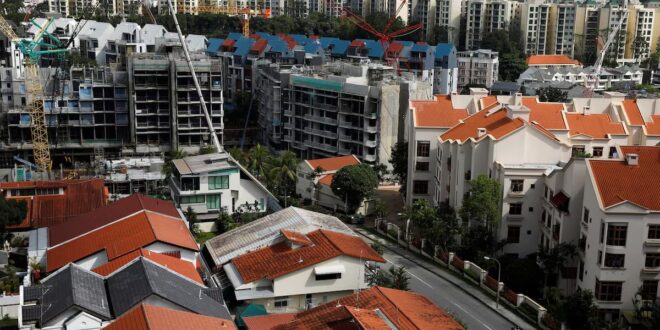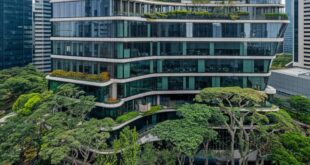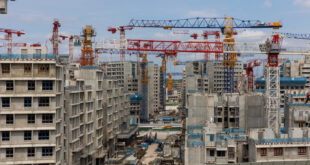If you think buying a home in Singapore is as easy as strolling into a showroom and picking the nicest unit, think again. In the land where affordable is a relative term and even public housing flats sometimes cross the S$1 million mark, owning a property can feel like an extreme sport. Owning a property here can indeed feel like a herculean task. So, is it really that hard to own a home here? In short, yes – but it’s not impossible if you know how to play the game.
Key Highlights
- Home prices hit record highs, making affordability a burning question.
- The government keeps rolling out cooling measures (stamp duties, loan limits, etc.).
- Financing a home requires gymnastic-level planning due to TDSR rules and big downpayments.
- New condo launches offer shiny perks but often at premium prices, while resale options trade newness for better value.
- With smart planning (using CPF, grants, right timing), to own a home is tough but achievable.
Market Trends: Sky-High Prices & Red-Hot Demand
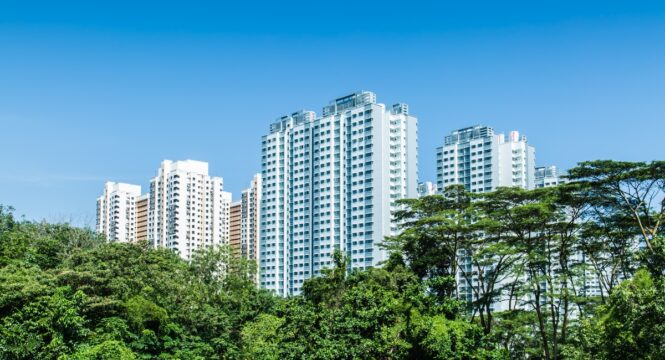
Let’s address the elephant (or rather Merlion) in the room: Singapore’s property prices are sky-high. Private home prices have been on a one-way escalator for years. Even after a pandemic and multiple cooling measures, values remain stubbornly high. In fact, private home prices rose 3.1% in the first half of 2023, defying a global slowdown. This comes after 10.6% and 8.6% jumps in 2021 and 2022. Translation: buyers are still shelling out around S$3,000 per square foot for condos in prime areas – enough to make any sane person’s wallet cry.
What’s driving this relentless demand? Two big factors:
- Limited Land, Global Demand: Singapore is tiny, but everyone wants a piece. Locals need homes and see property as a solid investment, while foreign investors and expats view Singapore real estate as a safe haven. With land supply finite and new projects often selling out, competition pushes demand through the roof.
- FOMO and Upward Expectations: To own a home is a rite of passage and, frankly, a national sport. There’s a widespread belief that any dip is temporary and prices will always bounce back. This fuels a FOMO mentality that keeps buyers in the game even when prices seem crazy.
The result? Buyers have queued overnight for condo launches, and HDB flats (public housing) now see resale prices that would’ve been unthinkable a decade ago. When hundreds of HDB flats have sold above S$1 million, you know the struggle is real.
Government Policies: The Cooling Measures Saga
If Singapore’s property market were a wild party, the government is the sober friend constantly hitting the brakes. Over the years, they’ve unleashed round after round of cooling measures to tame the market. Recent measures include:
- Additional Buyer’s Stamp Duty (ABSD): In April 2023, the government doubled ABSD for foreigners to 60%. Yes, foreigners now pay a staggering 60% tax on any home purchase. Singapore citizens aren’t spared either: a 20% ABSD now hits locals buying their second home (up from 17%), and 30% on the third. In short, the more properties you own, the more you “contribute” to the taxman.
- Loan-to-Value (LTV) Limits: The days of 90% mortgages are gone. HDB housing loans now max out at 80% LTV (down from 85%), so buyers need to fork out a bigger downpayment. For bank loans on private property, the cap is ~75% LTV, meaning you must cough up the remaining 25% in cash or CPF savings.
- Total Debt Servicing Ratio (TDSR): To prevent over-borrowing, your total monthly debt payments (including the new mortgage) can’t exceed 55% of your gross income. No matter how much you want that penthouse, if it doesn’t fit under the TDSR cap, the bank won’t lend you enough.
- 15-Month Wait-Out Rule: Planning to sell your private condo and immediately buy an HDB resale flat? Not so fast. Since Sept 2022, private home owners must wait 15 months after selling before they can purchase a resale HDB flat (unless you’re 55+ buying a small flat). This aims to stop cashed-out private sellers from quickly driving up HDB prices.
These measures have cooled the frenzy slightly, but demand remains strong. Authorities have signaled they’re ready to step in again if needed – the property policy saga continues.
Financing Hurdles: Mortgages, CPF & Money Matters
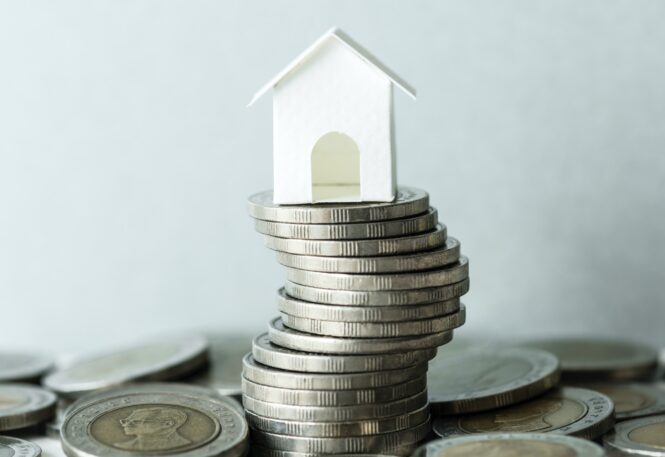
So you’ve braved the prices and rules and are ready to buy. The next challenge: financing the purchase. Getting a home loan and paying for a house in Singapore is like navigating an obstacle course of acronyms and requirements. Major financing hurdles include:
- TDSR – The Loan Gatekeeper: Remember the 55% TDSR rule. Before a bank grants you a loan, they will stress-test your finances. All your loan repayments – including the new mortgage – must fall under 55% of your income. If you have existing debts (car loan, student loan, credit cards), those eat into your capacity. Tip: Clear or reduce other debts before taking on a home loan. That car installment or credit card bill could be the thing that shrinks your eligible mortgage.
- Big Downpayment Requirements: For private property, you generally need 25% of the price upfront (at least 5% in cold hard cash). For HDB flats, it’s 20% down (which can be fully paid with CPF savings). That means for a S$1 million home, be prepared to fork out S$200k to S$250k Many first-timers tap their CPF Ordinary Account for this – it’s like breaking open a piggy bank you’ve been feeding for years. The hard truth is you’ll need significant savings (or help from family) to cover the downpayment and other purchase fees.
- Loan Tenure & Monthly Payments: Banks typically offer up to 30-year loan tenures for private properties (25 years for HDB loans). A longer tenure makes monthly payments more palatable but racks up total interest. And speaking of interest – it’s not 2% anymore. Mortgage rates are around 3-4% now, so a S$1M loan can mean payments of roughly S$5,000+ per month. Make sure your monthly cash flow can handle this without living on instant noodles.
- Use Your Housing Grants: If you’re buying an HDB flat and qualify for government grants, take advantage. Grants like the Enhanced CPF Housing Grant can knock tens of thousands off your purchase price. That’s money you don’t have to earn or borrow. Just note the conditions (like needing to live in the flat for a minimum period) and ensure they fit your plans.
In short, sorting out the money is a big part of the battle. It’s not just about swooning over showflat models; it’s about crunching numbers to see what you can truly afford. Many hopeful buyers get a reality check at this stage – sometimes that dream condo has to be downgraded to a more modest home. And that’s okay. It’s better to start small than to take on a financial nightmare you can’t sustain.
New Launch vs Resale: The Big Dilemma
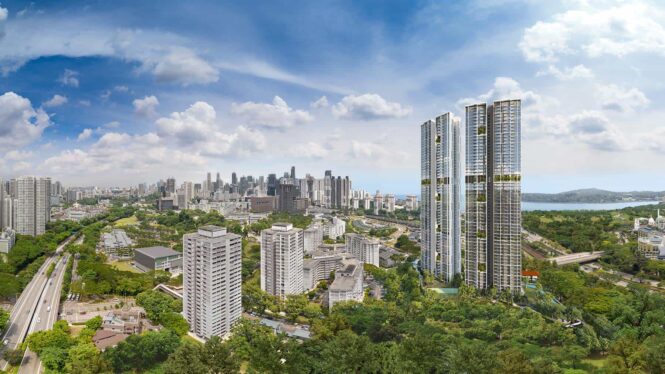
Should you go for a brand-new condo or an older resale property? It’s the classic shiny new toy vs. trusty old friend debate. New launches grab attention with glossy brochures and showflats, while resale homes offer tangible value and no waiting time. Here’s how they compare:
New Launch Condos – Latest designs, modern facilities, and that “brand new” feeling.
- Pros: Everything is new (duh) and under warranty. Lower maintenance issues initially. You pay in stages (progressive payments) rather than all at once. If you’re among the first buyers, you could see your unit’s value appreciate by the time the project is completed (assuming the market keeps rising).
- Cons: High upfront prices. Developers charge a premium, so you’re likely paying more per square foot than nearby resale properties. Also, unit sizes in new projects tend to be smaller. Plus, you have to wait 3-4 years to actually move in. And there’s a risk that a future condo launch next door could be priced lower, putting a cap on your potential appreciation.
Resale Properties – Existing homes on the secondary market, maybe lived-in for years.
- Pros: What you see is what you get. You can physically inspect the unit, the view, and the neighborhood. Often more spacious – older condos especially give you bigger rooms and living areas. No waiting; you can move in or rent out immediately. Prices are usually negotiable, so you might snag a deal if the seller is motivated.
- Cons: May need renovation (budget for it!). Older buildings can mean higher maintenance fees or future repair costs (aging elevators, worn-out facilities, etc.). If it’s a 99-year leasehold and a big chunk of the lease is gone, future value growth might slow and banks might be less willing to lend. And obviously, you won’t get the fancy new smart-home tech or insta-worthy rooftop pool that new condos tout.
Which is better? It depends on your priorities. Both new and resale properties can yield good returns if you buy smart (historically, over 90% of both types saw price gains in one study). For example, Terra Hill is a new freehold condo that offers modern living with no lease decay – but you’ll pay a premium for those perks. On the other hand, a 20-year-old resale condo nearby might give you a bigger home for a lower price (minus the shiny newness).
Brutal truth: Go for a new launch if you value modernity and can stomach the price (and wait), or opt for resale if you want more space and immediate use for your dollar.
Practical Tips for Aspiring Homeowners
Alright, enough doom and gloom. How do people actually pull it off? Here are some practical tips to improve your odds in the Singapore property game:
- Save, Save, Save: Start saving early – both cash and CPF. The more you stash away, the easier that downpayment and stamp duty bill will be. Forgo some luxuries now so you can afford the bigger luxury of a home later.
- Use Your Grants: If you’re eligible for HDB or executive condo grants, by all means use them. That’s free money to subsidize your flat purchase. Just be mindful of any conditions (like a minimum occupation period) that come with the grant.
- Stay Flexible on Location/Type: Maybe you dream of a prime district condo, but your budget fits a suburban flat. It’s not a defeat to choose a less glamorous location or an HDB unit; it’s a step onto the property ladder. You can always upgrade in the future when finances improve. What matters is entering the market in a way you can afford.
- Don’t Stretch to the Max: Just because the bank is willing to lend you the maximum amount doesn’t mean you should borrow it all. Maintain some buffer in your finances. Life is unpredictable – job changes, kids, medical needs – and you need cushion room. You want to be able to own your home comfortably, not let your home loan own you.
Conclusion: So, Is It Really That Hard?
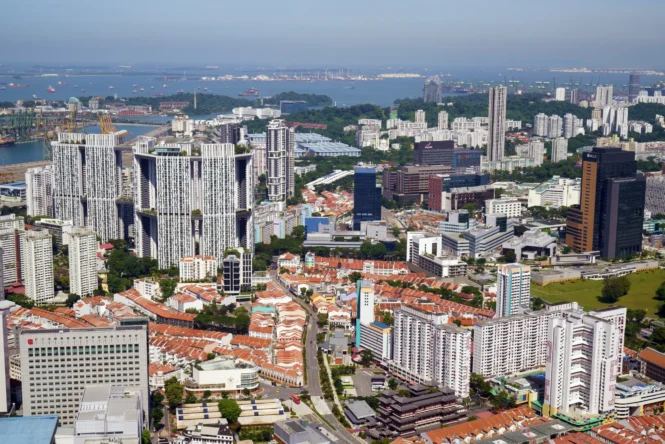
In summary, Singapore’s property market is unforgiving — it will test your finances, your patience, and your sanity. But with prudent planning and savvy moves, it’s doable. Many Singaporeans have managed to secure homes by staying informed, seizing opportunities (like buying during a market lull or jumping on a well-timed BTO launch), and most importantly, not overextending themselves. Ultimately, to own a home here is tough but attainable, and the reward – having a place to call your own in this bustling city – is well worth the effort.
(And hey, if all else fails, there’s no shame in renting. Better to live well in a rented home than to drown in debt to own one. But that wouldn’t be as fun to write about, would it?)
 Imagup General Magazine 2024
Imagup General Magazine 2024
